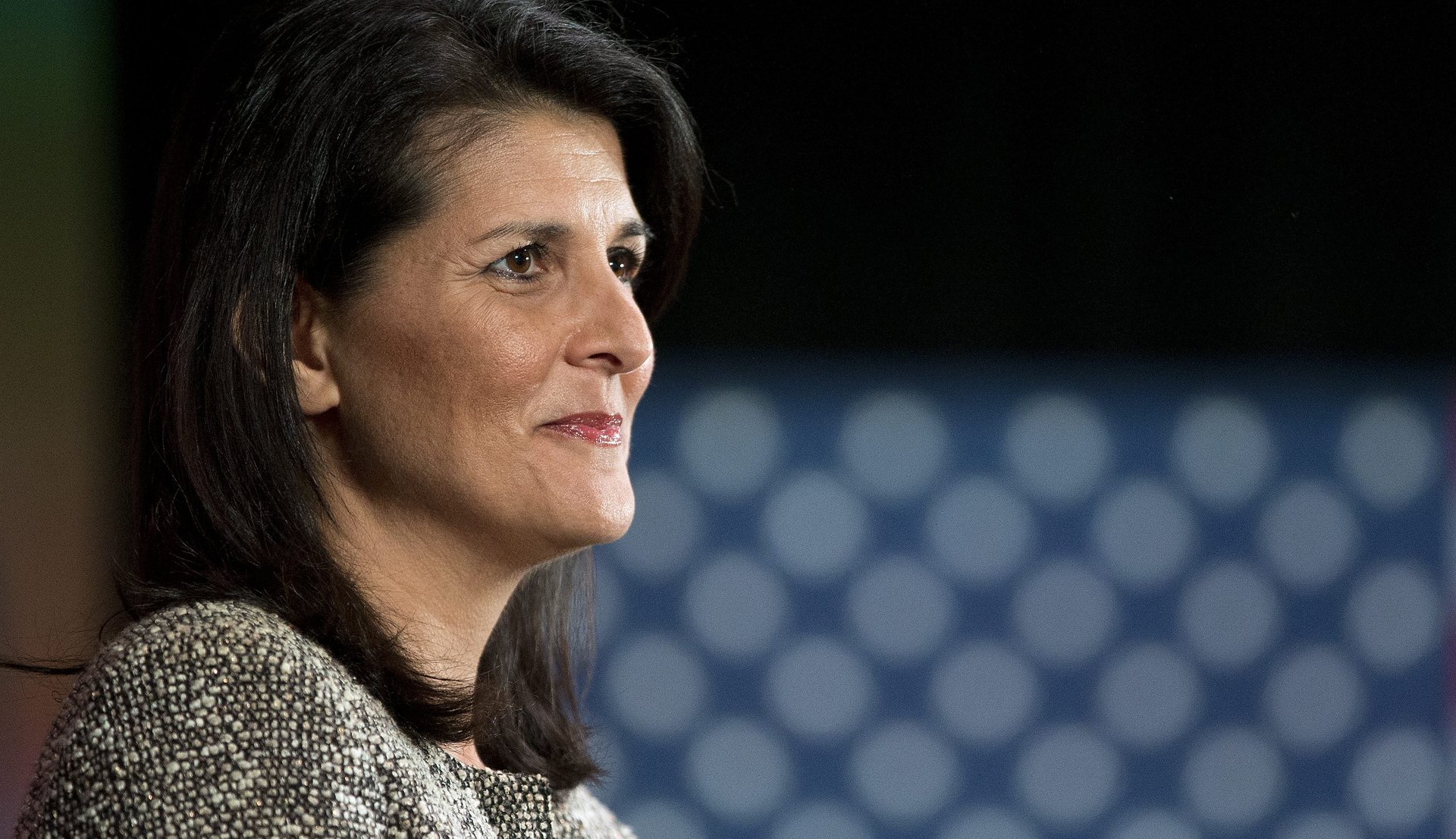The cynical tactic bosses like Trump use to marginalize their critics
Donald Trump’s nomination of Nikki Haley as ambassador to the United Nations is a classic maneuver out of the office-politics playbook.


Donald Trump’s nomination of Nikki Haley as ambassador to the United Nations is a classic maneuver out of the office-politics playbook.
Promoting enemies or rivals into a place where they can do little harm is a longstanding leadership strategy. By assigning them to important-sounding but ineffectual or distant roles, their threat can be neutralized. It preserves workplace harmony, doesn’t attract the negative attention that would come firing them, and reduces the chance they’ll bolt for a competitor.
Haley, the governor of South Carolina, was an outspoken critic of Trump during the campaign. But she’s also a prominent rising star among Republicans, and a woman of color—she’s Indian American—in a party that doesn’t have many. By offering Haley the UN position, Trump pulled off an impressive feat of political jujitsu:
- He effectively muzzles a potential critic. Haley will be required to toe the administration’s line, and her political fire will more likely be aimed at their mutual enemies. As Lyndon Johnson reportedly said about J. Edgar Hoover: “It’s probably better to have him inside the tent pissing out, than outside the tent pissing in.”
- At the same time, she’s exiled to an institution that will likely receive little attention from Trump, who is a sharp critic of multinational bodies. Earlier this year he said the UN “is not a friend of the United States” and it’s hard to see how she’ll use the position to influence the administration. In fact, Haley’s lack of foreign policy experience may be a signal of how little Trump values the UN gig.
- By giving a cabinet position to a woman of color, Trump may hope to inoculate himself against charges that he doesn’t value diversity. Certainly, his supporters will be able to point to Haley as evidence that liberal criticism of Trump as racist or misogynist is off-base.
- Lastly, the appointment clears the way for South Carolina Lt. Gov. Henry McMaster, an early Trump supporter, to replace Haley.
There’s been a lot of evidence of Trump’s bumbling in the early days of his White House transition. He’s contradicted campaign promises, hasn’t satisfactorily explained what he’ll do with his businesses, and it appears his advisors are lying to him. But when it comes to Machiavellian management tactics, his game is strong.